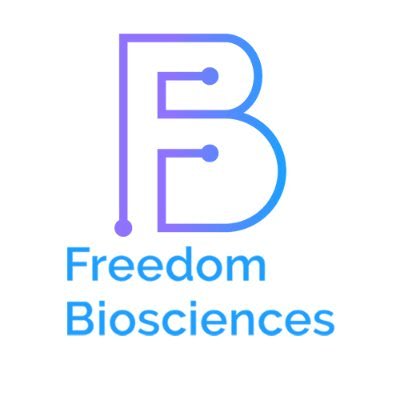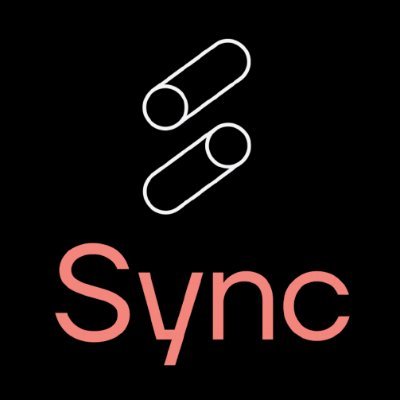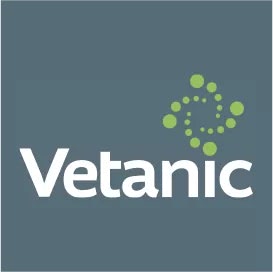Spinouts working on ketamine-based therapeutics, regenerative medicines for dogs and better sleep are among those that caught our eye this month.

AstriVax

A seed round worth $30m isn’t entirely unheard of, but it is a record amount for a spinout out of KU Leuven that AstriVax broke towards the end of last month.
AstriVax builds on research at the Belgian university’s Rega Institute into vaccines that are easy to manufacture and have reduced cold chain requirements, all while offering broad and long-lasting protection. Its initial focus is on a thermostable yellow fever vaccine, a vaccine to prevent rabies and another one to treat chronic hepatitis B.
The seed round was led by V-Bio Ventures, the venture capital firm linked to research institute VIB (learn more about V-Bio in our interview with managing partner Christina Takke), and Fund+, while KU Leuven itself participated through its Gemma Frisiuis Fund (find out more about KU Leuven’s tech transfer operation in our interview with Paul Van Dun). Other backers included Flanders Future TechFund, Thuja Capital, Ackermans & van Haaren, Mérieux Equity Partners’s OMX Europe Venture Fund and BNP Paribas Fortis Private Equity.
Cellfion

Producing renewable energy is only one part of a complex challenge on the road to a sustainable future. Another is storing that renewable energy using technolgoy that doesn’t itself cause irreparable harm.
The storage is often done with a redox flow battery, an electrochemical cell which consists of two tanks of liquids that are pumped past a membrane held between two electrodes. The membrane is usually made out of per- and polyfluoroalkyl substances — these are better known by their acronym PFAS and are so-called forever chemicals because they do not break down and cause environmental damage.
Cellfion is aiming to commercialise membranes that instead use cellulose, which is extracted from wood and the most abundant biopolymer on earth. Based on a decade of research at KTH Royal Institute of Sweden, Linköping University and RISE, Cellfion’s membranes actually feature no toxic substances at all.
The spinout’s raised $1.3m in a seed round backed by university vehicles LiU Invest, KTH Holding and Voima Ventures (a reincarnation of VTT Ventures), as well as Almi Invest Green Tech and Klimatet Invest.
Freedom Biosciences

Psychedelic therapy has experienced somewhat of a resurgence over the past few years and the US and Canada are among the countries where regulators have shown themselves open to making such treatments available (psilocybin is one such drug, which is aimed at major depressive disorder and treatment-resistant depression).
It’s hardly a surprise that university researchers have also been looking at the area and last month, Yale University spinout Freedom Biosciences emerged out of stealth to unveil its platform for ketamine and psychedelic therapeutics.
Co-founder John Krystal, chair of the Department of Psychiatry at Yale University, already has some clout in the area: together with Robert Berman (who serves as head of the scientific advisory board of Freedom Biosciences), his research into ketamine therapeutics in the 90s led to the Spravato Esketamine spray, sold by Janssen to treat depression.
MBX Capital has led a $10.5m seed round for Freedom Biosciences, while other participants included PsyMed Ventures, Village Global and The Yale Startup.
Matta

As transformative as additive manufacturing promises to be, the delicate process means 3D printers remain prone to errors. Matta, a spinout of University of Cambridge, has developed an artificial intelligence platform that is capable of detecting and correcting such errors in real time.
Perhaps more impressive still is that this works even in machines printing new designs or unfamiliar materials (Matta gives the example of ketchup and mayonnaise), because the algorithm learns across machines. The hardware setup is surprisingly low cost: other than the obvious part, a 3D printer, it requires a USB webcam and a Raspberry Pi.
Founder Douglas Brion likens the technology to a driverless car, saying that for additive manufacturing to become truly commercially viable, it “must work for multiple parts, materials and printing conditions” and has to constantly monitor and make changes as needed.
The company does not appear to have raised any equity financing yet.
MiAlgae

Feeding animals sustainably is probably not on your mind when you sip a glass of Scottish single malt, but it has been on the mind of MiAlgae founder Douglas Martin, who launched his company out of University of Edinburgh in 2016.
MiAlgae recycles byproducts from the food and drink industry, including whisky distillation, into human-grade omega-3 that can in turn be used in animal food or to feed fish (which do not produce omega-3, they get it from eating seaweed and, you guessed it, algae).
MiAlgae has had the support of tech transfer office Edinburgh Innovations since inception, and investment arm Old College Capital returned for the company’s latest round of more than $1.2m. Equity Gap, Scottish Enterprise and SIS Ventures also took part, while Ascension-managed Conduit Impact Fund led the round.
Nukkuaa

How’s your sleep? If you’re anything like a growing number of people, increasingly bad thanks to years of a pandemic, a seemingly endless stream of bad news and work stress. In Germany, Austria and Switzerland, the number of bad sleepers is estimated at a jaw-dropping 25 million people.
Bad sleep is awful for your physical and mental health, from an increased risk of depression and weight gain to cardiovascular disease — ultimately, your life expectancy is shortened.
University of Salzburg has spun out Nukkuaa (derived from the Finnish word for sleep, nukkua) to tackle this enormous challenge with a mobile app that serves as a sleep laboratory you can use at home. It does its analytics through a sensor that measures heart activity, so you don’t have to connect a bunch of cables to your head (which in itself would disturb your sleep and impact data collected).
The app coaches you on how to improve your sleep using the data collected. It also offers audio exercises to prepare your mind and body for sleep.
Nukkuaa isn’t the only app out there that promises to improve sleep, but it is the only one that can claim to have the head of the Sleep, Cognition and Consciousness Research Laboratory at University of Salzburg’s Centre for Cognitive Neuroscience as its founder. And with countless wellness apps out there with murky claims, such scientific expertise is worth a lot.
Angel investor Christoph Leitl has put an undisclosed amount of money into Nukkuaa.
SecondCircle

Could you use bacteria to capture carbon dioxide from exhaust gas of industrial smokestacks? SecondCircle says yes. In fact, the TU Denmark spinout takes it a step further: not only does it remove carbon dioxide, it then helps clients turn it into products like fertiliser, animal feed or chemicals used in detergents.
The technology isn’t perfect – converting 100% of carbon dioxide would be too expensive, SecondCircle says – but on the upside its bacteria can work at 60 degrees Celsius, which is just about high enough to reduce the risk of contamination to a point where it’s commercially viable, and the organisms can withstand high acidity.
Atlantic Labs most recently led a $1.2m pre-seed round for the spinout, but crucially SecondCircle also has a $43m grant from the EU’s Horizon 2020 programme to play with.
Sync Computing

Cloud computing has a dirty secret: for all of the advances in powerful computing offerings, humans are still required to select low level application configurations, cloud instance types and navigate complex pricing tiers. It’s time intensive and costly.
Sync Computing, spun out of Massachusetts Institute of Technology, hopes to solve that issue with an algorithm that automatically finds the optimal way to use the cloud — all while letting clients choose whether to prioritise time or cost when allocating resources.
The Engine, the venture fund backed by MIT and Harvard University, has contributed to a $15.5m series A round for Sync Computing, which was led by Costanoa Ventures. Moore Strategic Ventures, National Grid Partners have also invested, as have angels Satyen Sangani, Ron Avnur and Rebecca Li.
Vetanic

Although not impossible, it has so far been difficult to generate induced pluripotent stem cells in some animal species, including dogs, meaning regenerative medicines have proven elusive. Vetanic, a joint spinout of Nihon and Keio universities, plans to change that.
Vetanic is building a standardised master cell bank of induced pluripotent stem cells that it can use to induce differentiation and create treatments for everything from systemic inflammatory diseases to spinal cord injuries. It means treatments would ultimately not need to rely on donors, removing an ethical concern that more and more donor animals would be exposed to increasingly more stress as therapies move towards mass production.
The company has raised $3.7m in series A financing from Keio University’s Innovation Initiative and QB Capital, a venture capital firm backed by Kyushu University’s tech transfer office.
WeMatter

Access to medical care for women of colour in the US has a difficult history. It’s a reality recognised by New York University, which has participated in a $1.5m seed round for WeMatter, an online platform and app aimed at black women who experience postpartum comorbidities.
The company was originally known as SheMatters, but is in the process of rebranding as it aims to expand its offering to more populations. That will include the creation of cultural competency certifications covering Asian American women, indigenous women, Hispanic women, queer and trans people, and marginalised heterosexual men.
Oxeon Ventures, Chingona Ventures, The Fund and Techstars are also investors.









